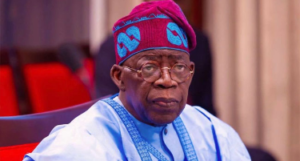Senator Heineken Lokpobiri, the Minister of State for Petroleum Resources, has proudly reaffirmed Nigeria’s status as the leading oil and gas producer in Africa, outpacing other significant oil-producing nations on the continent, such as Angola. In a recent update on the achievements of his ministry, Senator Lokpobiri highlighted several key milestones and initiatives that have reinforced Nigeria’s dominance in the sector.
One of the pivotal points he raised was the supportive environment fostered by President Tinubu over the past year. According to Lokpobiri, the president’s administration has been instrumental in creating conditions conducive to boosting investor confidence in Nigeria’s oil industry. This strategic focus has not only stabilized the sector but also stimulated significant growth.
Lokpobiri provided impressive statistics to underline Nigeria’s progress. He noted that the country has surpassed the Organization of the Petroleum Exporting Countries (OPEC) production benchmark, with Nigeria currently producing approximately 1.7 million barrels of crude oil per day. This achievement underscores the effectiveness of the policies and reforms implemented by the Tinubu administration.
Moreover, the minister highlighted the substantial financial investments that have flowed into the oil sector over the past year. He reported that $20 billion has been invested in various oil-related projects, with an additional $10 billion specifically allocated to deep offshore ventures. These investments are crucial for the long-term sustainability and expansion of Nigeria’s oil industry.
Despite these advancements, Lokpobiri acknowledged that there are still challenges to be addressed. One significant issue he identified is the problem of evacuation, which has hampered crude oil production. He expressed concern over the deteriorating condition of oil pipelines and the lack of substantial investments in the sector over the past twelve years. This neglect has created bottlenecks in the efficient transport of crude oil, affecting overall production efficiency.

In addressing these challenges, Lokpobiri pointed to recent positive developments. He mentioned a crucial meeting with the leadership of Schlumberger, a leading oilfield services company, which he believes will lead to beneficial investments in the sector. This engagement with Schlumberger is expected to bring in the much-needed expertise and financial resources to upgrade and maintain Nigeria’s oil infrastructure.
Furthermore, the minister emphasized one of the ministry’s most significant achievements over the past year: the stabilization of peace in the Niger Delta region. This region, historically plagued by unrest and militant activities, has seen a notable improvement in security and stability. Lokpobiri attributed this success to concerted efforts by the government to address the underlying socio-economic issues and engage with local communities. The resulting peace has not only enhanced the safety of oil operations but has also contributed to the overall increase in production.
In conclusion, Senator Heineken Lokpobiri’s update paints a picture of a resilient and advancing oil sector in Nigeria. The strategic policies and investments initiated under President Tinubu’s administration have positioned Nigeria to maintain and even enhance its leading role in Africa’s oil and gas industry.
However, the minister’s candid acknowledgment of existing challenges and his proactive approach to addressing them signal a commitment to continuous improvement and sustainable growth in the sector. As Nigeria continues to navigate the complexities of the global oil market, the strides made in the past year provide a solid foundation for future achievements.




